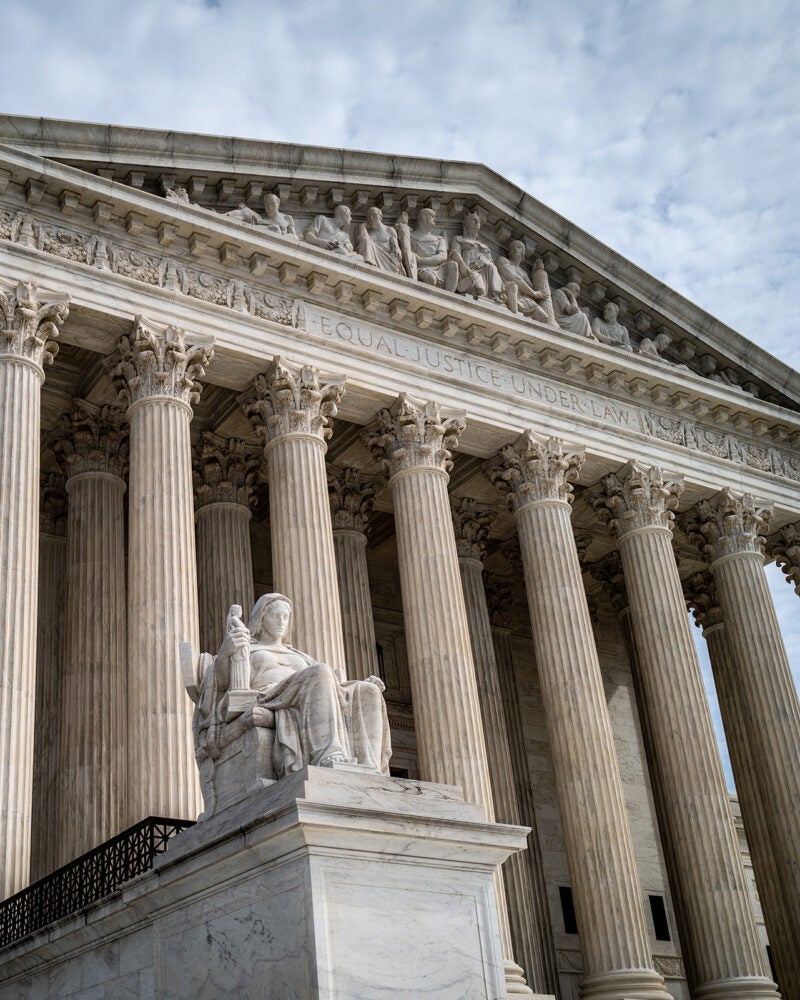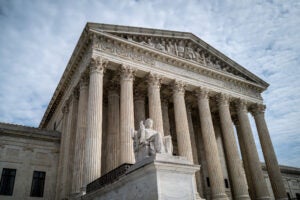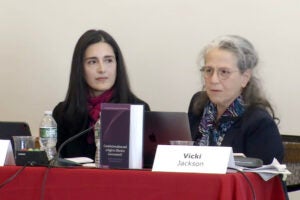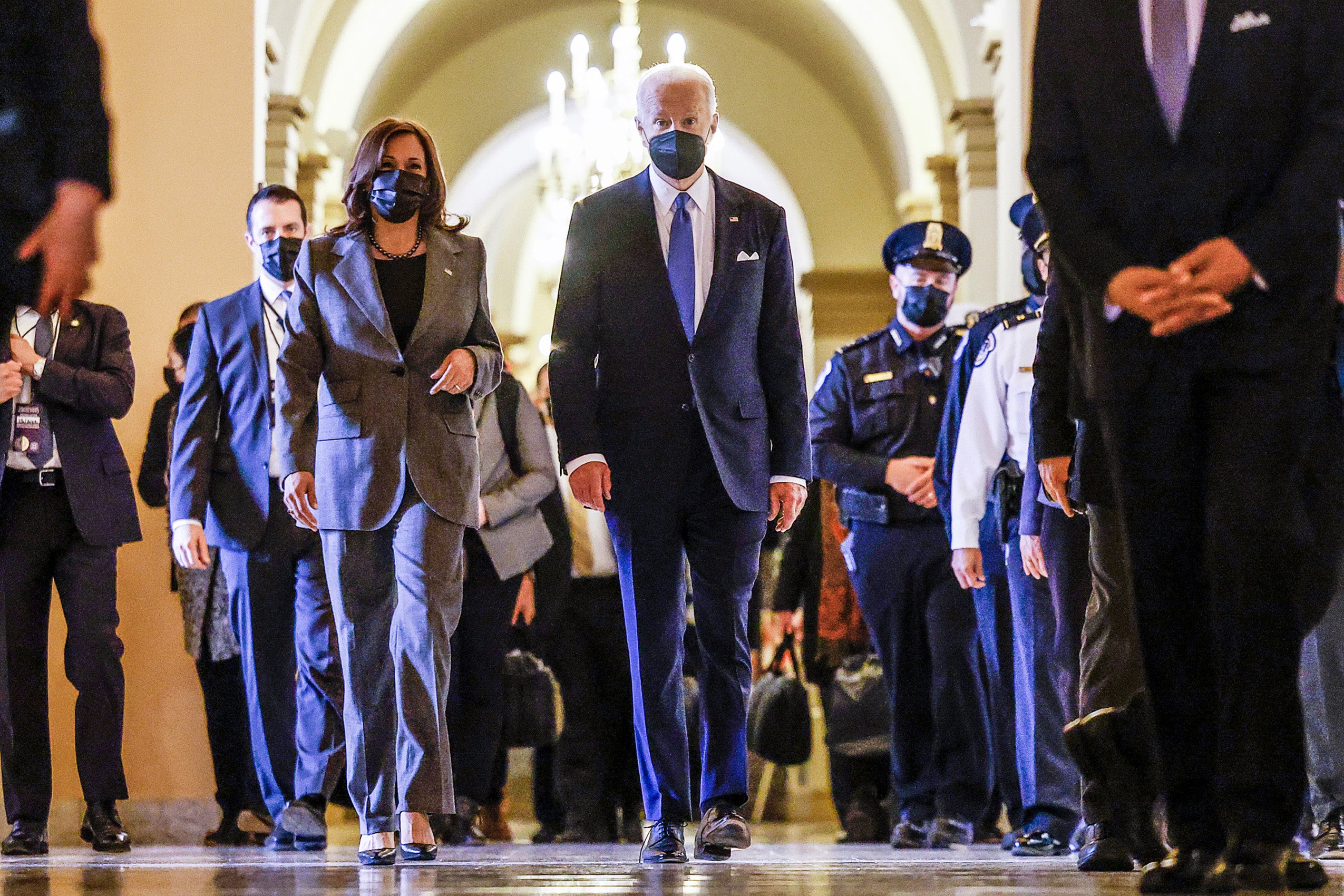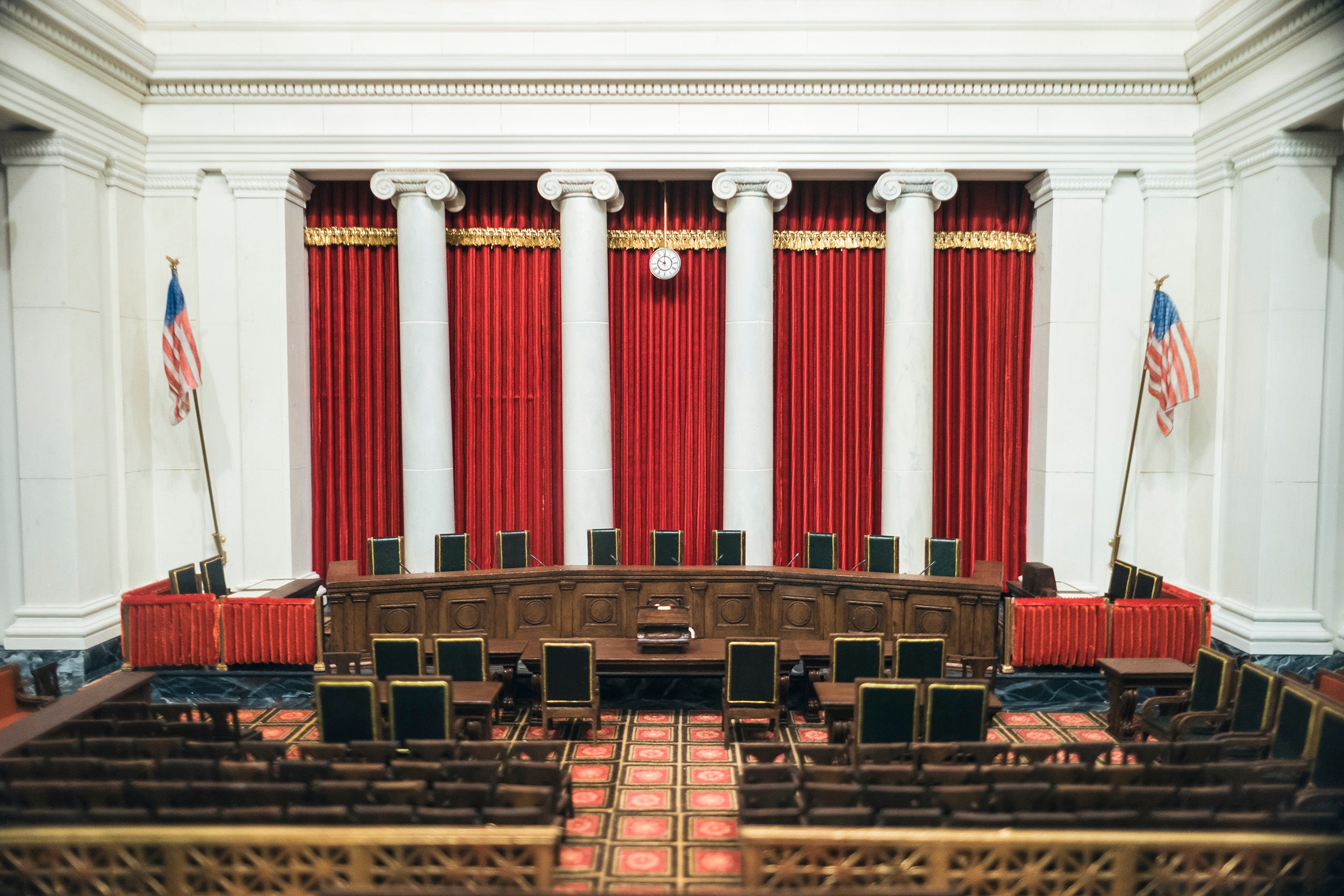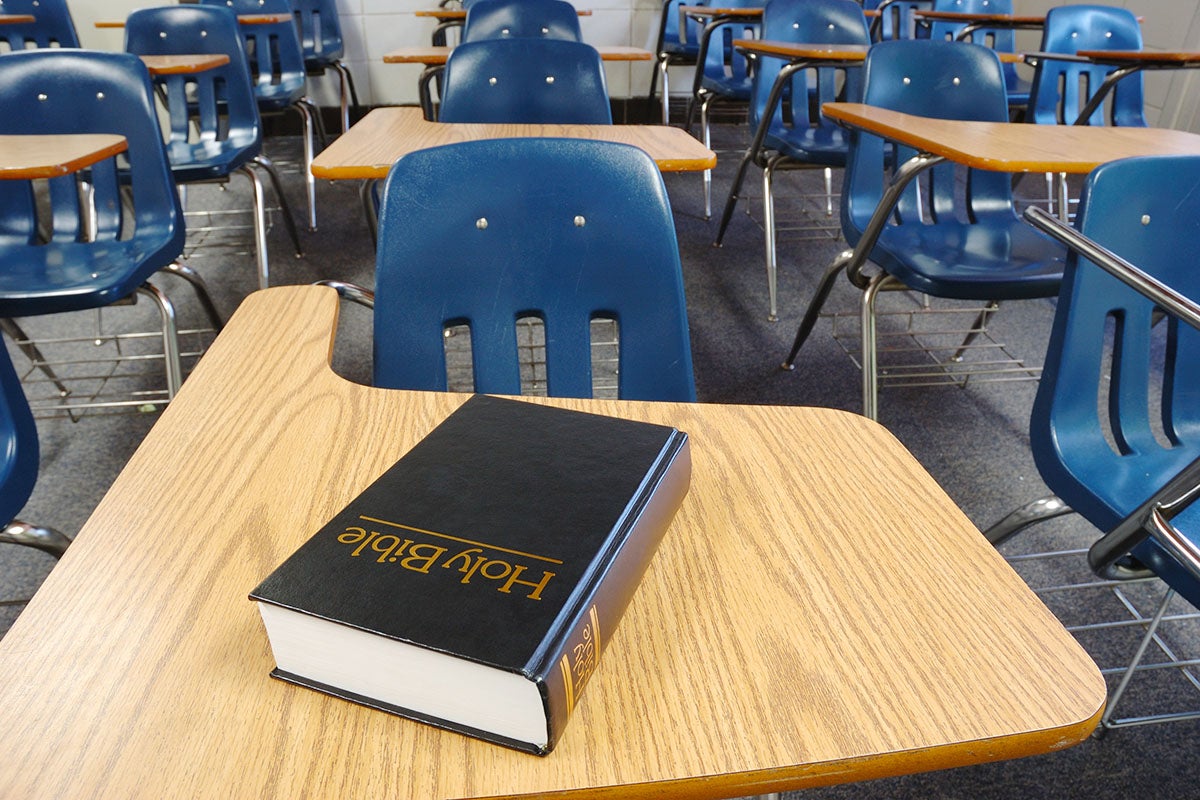People
Mark Tushnet
-
Supreme Court preview: United States v. Rahimi to test Second Amendment and gun control
October 31, 2023
Harvard Law expert Mark Tushnet says an upcoming Supreme Court gun control case could ‘open up a very large number of questions about statutes that most people in this country think should be upheld.’
-
Last summer, the U.S. Supreme Court overturned a century-old New York law that had effectively banned people from carrying handguns in the state. In a…
-
Notes and Comment, an annual event held at the Harvard Law School Library, helps students working on writing projects find faculty mentors.
-
‘Effectiveness in government is not something one can just assume’
November 18, 2022
In a Library book talk, Professor Vicki Jackson and panelists discuss constitutionalism, and rights to effective government
-
Faculty Books in Brief: Summer 2022
July 2, 2022
From the Hughes Court to stock market short-termism to the U.S.'s "defend forward" cyber strategy
-
The explosive leak of a Supreme Court draft opinion suggesting the imminent reversal of Roe v. Wade has proved quite the Rorschach test for a country long divided over this most fundamental of moral issues. The usual combatants have reacted predictably, even though the document is, hello, only a “draft” by Justice Samuel A. Alito Jr. and may or may not receive the predicted approval by five conservative justices. Pity Chief Justice John G. Roberts Jr., who had this unprecedented leak on his watch and has ordered an investigation. ... Alito does his best to argue that it is not only conservatives who found the original reasoning in Roe lacking. As cited in the brief, Archibald Cox, who served as solicitor general under Presidents John F. Kennedy and Lyndon B. Johnson, remarked that Roe “read[s] like a set of hospital rules and regulations” that “Neither historian, layman, nor lawyer will be persuaded … are part of … the Constitution.” Harvard constitutional scholar and author Mark Tushnet called Roe a “totally unreasoned judicial opinion.”
-
The Justices Have No Clothes
April 11, 2022
During periods of autocratic, populist upheaval, judges tend to find themselves in the political crosshairs. Faced with leaders who are bent on hollowing out the rule of law, the judiciary often must choose between bending the knee and defiantly asserting the supremacy of fundamental legal norms, come what may. ... Still, not everyone is quite so worried about the political nature of America’s judiciary, nor with the populist direction that many democracies are taking (or have taken). As Harvard Law’s Mark Tushnet and Bojan Bugarič of the University of Sheffield write in their new book, Power to the People, populism in and of itself is not the threat that many commentators and politicians have painted it to be. They prefer to view populism as a means of governing, which “must be considered together with its host ideology.”
-
After all of the entreaties from top Republicans to show respect at Judge Ketanji Brown Jackson’s confirmation hearings, Senator Ted Cruz on Tuesday afternoon chose to grill the first Black woman nominated for the Supreme Court on her views on critical race theory and insinuate that she was soft on child sexual abuse. The message from the Texas Republican seemed clear: A Black woman vying for a lifetime appointment on the highest court in the land would, Mr. Cruz suggested, coddle criminals, go easy on pedophiles and subject white people to the view that they were, by nature, oppressors. ... But to Mark Victor Tushnet, a Harvard law professor who clerked for Justice Marshall, the attacks against Judge Jackson have been far less veiled than those against Justice Marshall. “Dog whistles are supposed to be things that you can’t hear but that you receive in the subconscious,” Mr. Tushnet said. “This is all quite open.”
-
Some on the right have first Black woman justice’s qualifications under a microscope. It’s not a new strategy.
February 22, 2022
When Thurgood Marshall arrived at the Capitol for his Supreme Court confirmation hearing on a July day in 1967, the 58-year-old lawyer was the most celebrated legal advocate in the civil rights movement. He had braved death threats and successfully argued more than two dozen cases before the Supreme Court, including decisions that ensured Black voters could cast primary ballots in Texas and ended government-mandated segregation in public schools. ... The esoteric probing was Thurmond’s way of hinting that “Marshall wasn’t intellectually up to the job,” said Harvard Law School professor Mark Victor Tushnet, who clerked for Marshall and has written two books on him.
-
Faculty Books in Brief: Winter 2022
January 31, 2022
A wide range of books by faculty, from a collection of essays on the ethics of consumer genetic testing to a look at the fate of constitutional institutions in populist regimes to a delightful children's book by a legal philosopher
-
Weighing President Biden’s first year
January 18, 2022
In this series, Harvard Law experts turn a critical eye to the Biden administration’s efforts on health care, the economy, criminal justice reform, and other areas important to Americans — and share their thoughts on its agenda for the future.
-
Weighing President Biden’s first year: The federal courts
January 13, 2022
Harvard Law School expert Mark Tushnet says the Biden administration has succeeded in appointing federal judges and also “opened space” for discussion of Supreme Court reform.
-
On the bookshelf
November 30, 2021
Here are some of the latest from HLS authors to add to your reading list over the holiday break.
-
Supreme Court preview: Carson v. Makin
November 29, 2021
Professor Emeritus Mark Tushnet explains how the Supreme Court’s decision in Carson v. Makin could impact funding for religious schools.
-
Potential Biden Supreme Court pick joins fray over Trump Jan. 6 subpoena
November 29, 2021
Ketanji Brown Jackson, seen by Democrats as a top contender for a future Supreme Court vacancy, is one of three judges assigned the weighty task of reviewing former President Trump's bid to block a congressional subpoena for records related to the Jan. 6 attack. ... Still, if Jackson votes against Trump in the pending case, they said, it’s a near certainty that Republicans would use it against her if she is eventually tapped for the high court. “The chance is 100 percent that Republicans will use her vote against her,” said Mark Tushnet, a law professor at Harvard. “The only interesting question is how they would spin a vote for Trump against her — probably to say that it shows that she casts her votes with an eye to how it's going to benefit her.”
-
Supreme Court preview: New York Rifle & Pistol Association v. Bruen
October 22, 2021
Harvard Law Professor Emeritus Mark Tushnet explains SCOTUS’s upcoming gun control case, New York Rifle & Pistol Association v. Bruen.
-
Power to the people
October 12, 2021
In “Power to the People: Constitutionalism in the Age of Populism,” co-authors Mark Tushnet and Bojan Bugarič argue that populism is neither inherently conservative nor necessarily inconsistent with constitutional democracy.
-
Legal experts offered a variety of predictions Thursday on whether the US Supreme Court is poised to overturn Roe v. Wade, the landmark 1973 decision establishing a woman’s constitutional right to get an abortion. At least five and maybe six of the justices on the nine-member court are “ready to overturn Roe and its legacy,” said Mark Tushnet, an emeritus Harvard Law School professor. “I think it was clear with the appointment of Justice [Amy Coney] Barrett that there was a firm majority to repudiate the court’s abortion-related jurisprudence.” But other experts were less sure of how the high court will rule or suggested it would move incrementally, rather than make a sweeping move.
